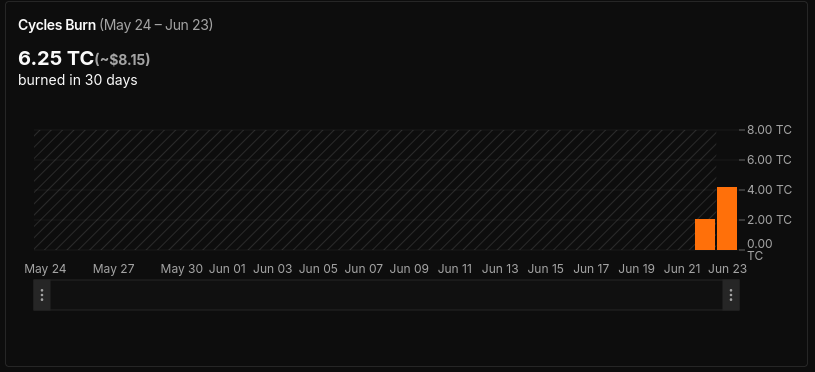Announcing ICRC7/ICRC37: A Complete NFT Implementation for the Internet Computer
Introduction
Hello Internet Computer Community!
We’re excited to share ORIGYN’s latest contribution to the IC ecosystem: a complete implementation of the ICRC7/ICRC37 NFT standard for the Internet Computer. After months of development and testing, ORIGYN is ready to invite the community to explore, test, and provide feedback on this comprehensive solution.
Building on Our Previous Work
As some of you may remember from our ICRC3 announcement, we’ve been working hard to create reusable components for the IC developer community. We structured our codebase to be modular and reusable, allowing developers to leverage specific components for their own projects.
Our ICRC3 transaction standard implementation was just the beginning, and now we’re expanding with this comprehensive NFT solution that leverages the same principles of reusability, standards compliance, and developer-friendly design.
What We’ve Built
This project provides a production-ready implementation of the ICRC7/ICRC37 NFT standard, consisting of three main components:
1. Core NFT Canister
-
Full implementation of the ICRC7/ICRC37 standard
-
Integrated ICRC3 transaction history
-
Certified responses for all queries
-
Fine-grained access control for NFT operations
-
Flexible storage integration options
2. Storage Canister
-
High-performance asset storage solution
-
Stable memory storage for persistence across upgrades
-
Intelligent heap caching system for frequently accessed assets
-
Certified HTTP asset serving
-
Automatic memory management
-
Optimized for minimal latency
3. Integration Tests & Example
-
Comprehensive test coverage ensuring reliability
-
Complete example for deploying an NFT collection
-
Step-by-step guide for minting and managing NFTs
-
Documentation for all available operations
Key Features and Benefits
Standards Compliance
-
Full implementation of ICRC7/ICRC37 NFT standard
-
Integration with ICRC3 for standardized transaction history
-
Forward compatibility with future ICRC standards
Performance and Reliability
-
Optimized storage solution using stable memory
-
Intelligent caching mechanisms for frequently accessed assets
-
Efficient memory management
-
Certified responses for security
Developer Experience
-
Easy-to-use API for NFT operations
-
Comprehensive documentation
-
Complete example implementation
-
Command-line tools for managing collections
Flexibility
-
Modular architecture allowing component reuse
-
Customizable metadata structure
-
Configurable collection parameters
-
Support for various NFT use cases
Why This Matters for the IC Ecosystem
The Internet Computer needs a robust, standardized approach to NFTs that developers can rely on. Our implementation aims to:
-
Standardize NFT operations: Provide a consistent interface for wallets, marketplaces, and applications
-
Reduce development effort: Offer a production-ready solution developers can adopt immediately
-
Improve interoperability: Enable NFTs to work seamlessly across different applications
-
Showcase best practices: Demonstrate efficient patterns for canister development
-
Build community expertise: Create a shared understanding of NFT implementation approaches
Community Involvement
While this implementation is still in beta, we believe strongly in the power of community-driven development. We’ve structured our code to be as reusable as possible, making it easy for anyone to adopt and build upon.
We need your help to make this truly excellent! Please:
-
Test the implementation: Deploy your own collection using our example
-
Provide feedback: Share your thoughts on the architecture and API design
-
Suggest improvements: Identify areas where we can enhance functionality
-
Report issues: Help us identify and fix any bugs or limitations
-
Consider adoption: Try using this implementation in your own projects
-
Contribute: Add features or improvements via pull requests
Creating a robust NFT standard implementation for the Internet Computer requires community collaboration, and your input is invaluable. Together, we can build a solution that meets the needs of the entire ecosystem.
Grant Application
We’re planning to apply for a developer grant to support the ongoing development and maintenance of this project. The grant would help us:
-
Expand documentation: Create comprehensive guides, examples, and tutorials
-
Enhance performance: Optimize for various usage patterns and scale
-
Add features: Implement additional functionality based on community feedback
-
Ensure compatibility: Test with various wallets, marketplaces, and applications
-
Provide long-term support: Maintain and update the implementation as standards evolve
Your support for our grant application would be greatly appreciated and would help ensure this project continues to serve the community’s needs.
Getting Started
The project is available on GitHub at https://github.com/ORIGYN-SA/nft.
To deploy your own NFT collection, follow these steps:
-
Clone the repository
-
Set up your environment variables
-
Deploy the collection using dfx
-
Upload assets using our command-line tools
-
Mint your first NFTs
Detailed instructions are available in the example directory.
Next Steps & Roadmap
We’re committed to making this the gold standard for NFTs on the Internet Computer. Our roadmap includes:
Short-term
-
Finalizing the beta: Addressing community feedback and fixing any issues
-
Documentation improvements: Creating more examples and tutorials
Medium-term
-
Continue work on ICRC3: Expand our ICRC3 implementation and add an indexer to facilitate transaction interactions
-
Repository separation: Split the ledger and storage canister repositories to provide more flexibility in how the ledger can be used
-
ICRC-97 support: Once validated by DFINITY, implement the ICRC-97 standard to ensure compatibility with Oisy and NFID, which are waiting for this standard to move forward
-
Intregration with Claimlink : See above Origyn bought Claimlink
Conclusion
We’re incredibly excited to share this implementation with the community and look forward to seeing what you build with it. Your feedback and contributions will be essential in making this a truly exceptional solution for the Internet Computer ecosystem.
Thank you for your support, and we can’t wait to hear your thoughts!
Resources:
